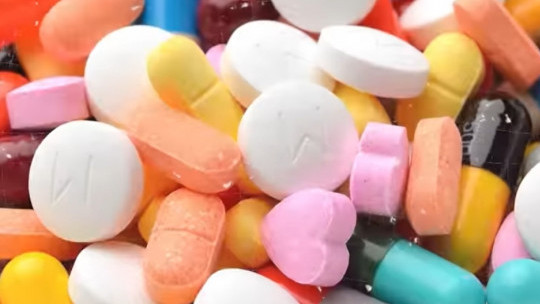.png)
00:00
00:00
00:00
State Minister in the Ministry of National Security Juliet Cuthbert Flynn, Dunstan Bryan, Permanent Secretary in the Ministry of Health and NCDA research analyst Uki Atkinson
By Racquel Porter
Jamaica's Early Warning System on Drugs has been launched to combat the growing threat of new psychoactive substances which are becoming much more popular and accessible around the world.
In 2022, Jamaica was alerted to the increased use of psychotropic substances and their devastating effects on young people.
An assessment at that time highlighted a growing trend in the use of the substance known as "molly" among youth and young adults.
Last October, more than 60 primary school students were hospitalised after consuming rainbow coloured sweets that appeared to have been laced with cannabis.
Speaking Friday morning at the launch of the Early Warning System, Minister of State in the Ministry of National Security Juliet Cuthbert Flynn said a surveillance mechanism will be developed and maintained.
"This Early Warning System is another important measure in Jamaica's counter-drug efforts. I believe that Jamaica and the region will definitely reap the benefits of this system, as a preemptive strike against the ills that traditional drugs, new psychotropic substances, and drug trafficking wreaks on the social, economic, political fabric of any country."
She said the emergence of new psychotropic substances like molly present unique challenges as these drugs are unpredictable, poorly understood and present distinctive requirements for treatment and law enforcement.
Dunstan Bryan, Permanent Secretary in the Ministry of Health, said psychoactive drugs have created challenges within the population.
Mr. Bryan noted that the effects of COVID-19 have created greater vulnerability in the area of mental health.
He pointed out that mental health challenges in Jamaica have increased by at least 20 per cent in the last five years.
"We see this in our young where presence of depression, presence of psychotic episodes triggered in some instances by the use of and abuse of drugs is resulting in a significant impact on our social norms and our social values, but more importantly it is impacting the public health response to these challenges as we move through the different dispensations," he lamented.
It is therefore imperative, he said, that public health take the stance of preventative management by ensuring the early warning system gives information that allows the authorities to address drug-related issues in the population as they arise.
Mr. Bryan said the threat of new psychoactive substances is not only a public health issue but also an economic challenge.
"I'm sure most of you would have heard that we are seeing the lowest rates of unemployment within the population in decades, but one of the interesting things is the number of persons that are not participating in the labour market, and you have to ask the question, why. Why are they not participating?
"Assessments and analysis by the NCDA [National Council on Drug Abuse] have identified that part of the issues have to do with mental health challenges, and the impact of mental health on your ability to be productive. Therefore, our public health response is not only an issue of addressing primary care, and the implications on primary care, but also the imperatives of the economy," he argued.
The National Council on Drug Abuse has said the 2023 National Drug Prevalence survey is complete.
Research analyst Uki Atkinson told Radio Jamaica News that the NCDA is finalising the results of the survey for publication and "should be able to disseminate in the next three to four weeks".
The last national survey, conducted in 2016, found that the popular substances were alcohol, followed by cannabis, cigarettes and emerging drugs.
But last year, the NCDA disclosed that a survey found new pyschoactive substances are being introduced to children.


.jpg)







 All feeds
All feeds







